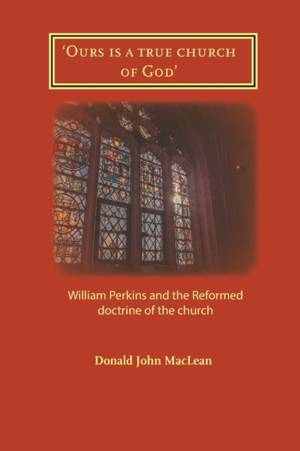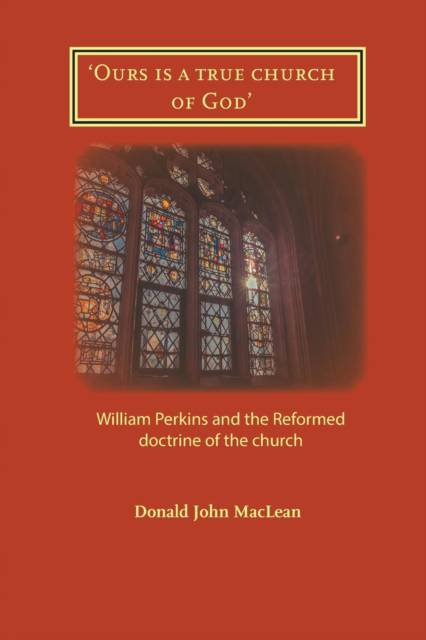
- Retrait gratuit dans votre magasin Club
- 7.000.000 titres dans notre catalogue
- Payer en toute sécurité
- Toujours un magasin près de chez vous
- Retrait gratuit dans votre magasin Club
- 7.000.000 titres dans notre catalogue
- Payer en toute sécurité
- Toujours un magasin près de chez vous
'Ours is a true church of God'
William Perkins and the Reformed doctrine of the church
Donald John MacLeanDescription
How do we discern a "true" church? Given the current ecclesiastical climate this is an increasingly pressing question. This study looks at how William Perkins, a great seventeenth-century Church of England theologian, responded to this issue. Particular focus is given to his understanding of the distinctions between the visible and invisible church, and the marks of a "true" church, namely, word, sacraments and discipline. Judged against these marks, Perkins argued passionately that the Church of England was "a true church of God".
He also, in line with traditional Reformed ecclesiology, allowed significant doctrinal and practical decline before a church ceased to be a "true" church. The criteria he outlined for leaving a church amounted to nothing less than the obstinate and persistent overthrow of cardinal Christian doctrine and worship.
Perkins' careful teaching calls us to consider our response to declension in the church today. Ultimately his ecclesiology calls us to have a high view of the unity of the visible church, and in many causes to labour for recovery rather than to leave.
Spécifications
Parties prenantes
- Auteur(s) :
- Editeur:
Contenu
- Nombre de pages :
- 48
- Langue:
- Anglais
- Collection :
- Tome:
- n° 2018
Caractéristiques
- EAN:
- 9781906327552
- Date de parution :
- 22-03-19
- Format:
- Livre broché
- Format numérique:
- Trade paperback (VS)
- Dimensions :
- 152 mm x 229 mm
- Poids :
- 81 g







